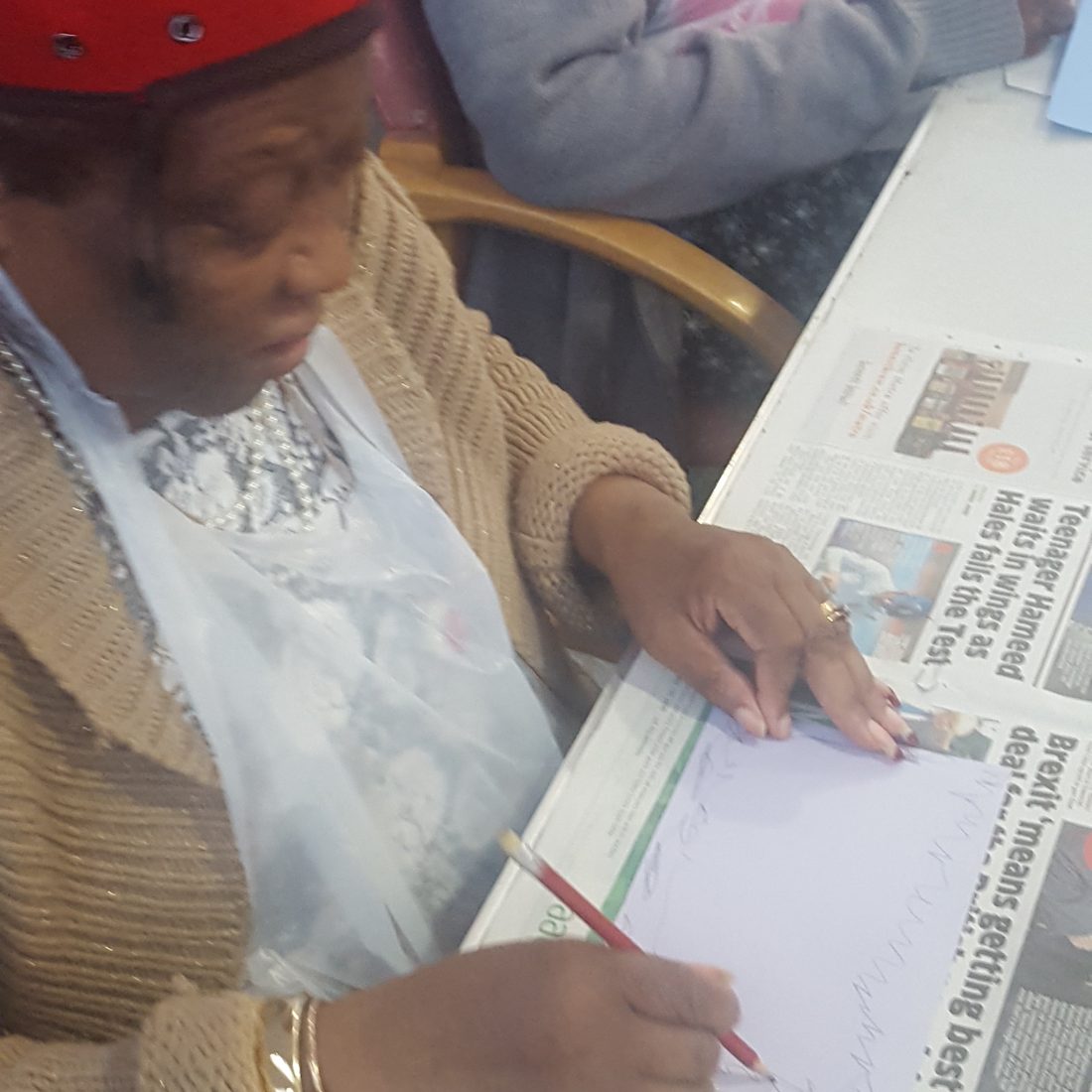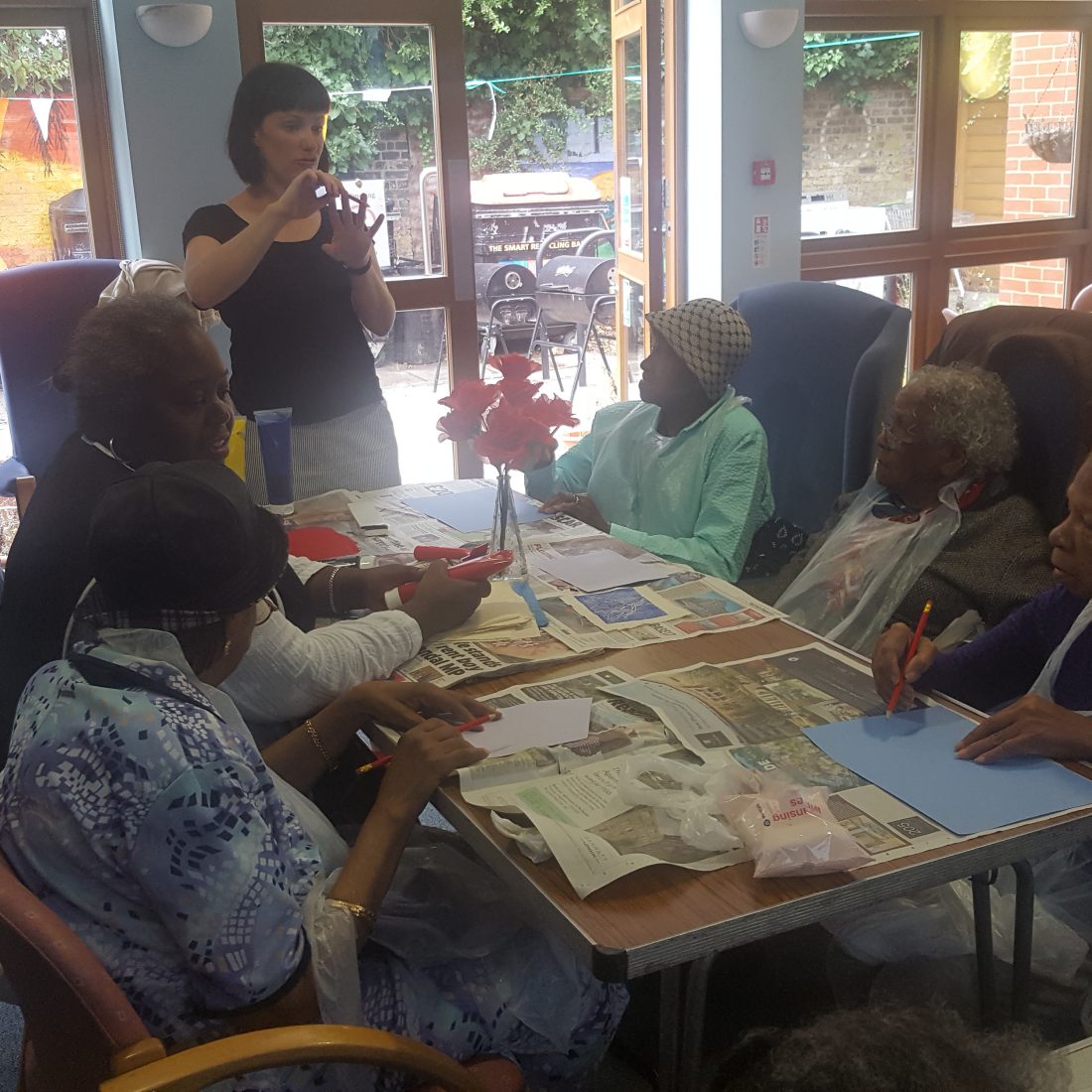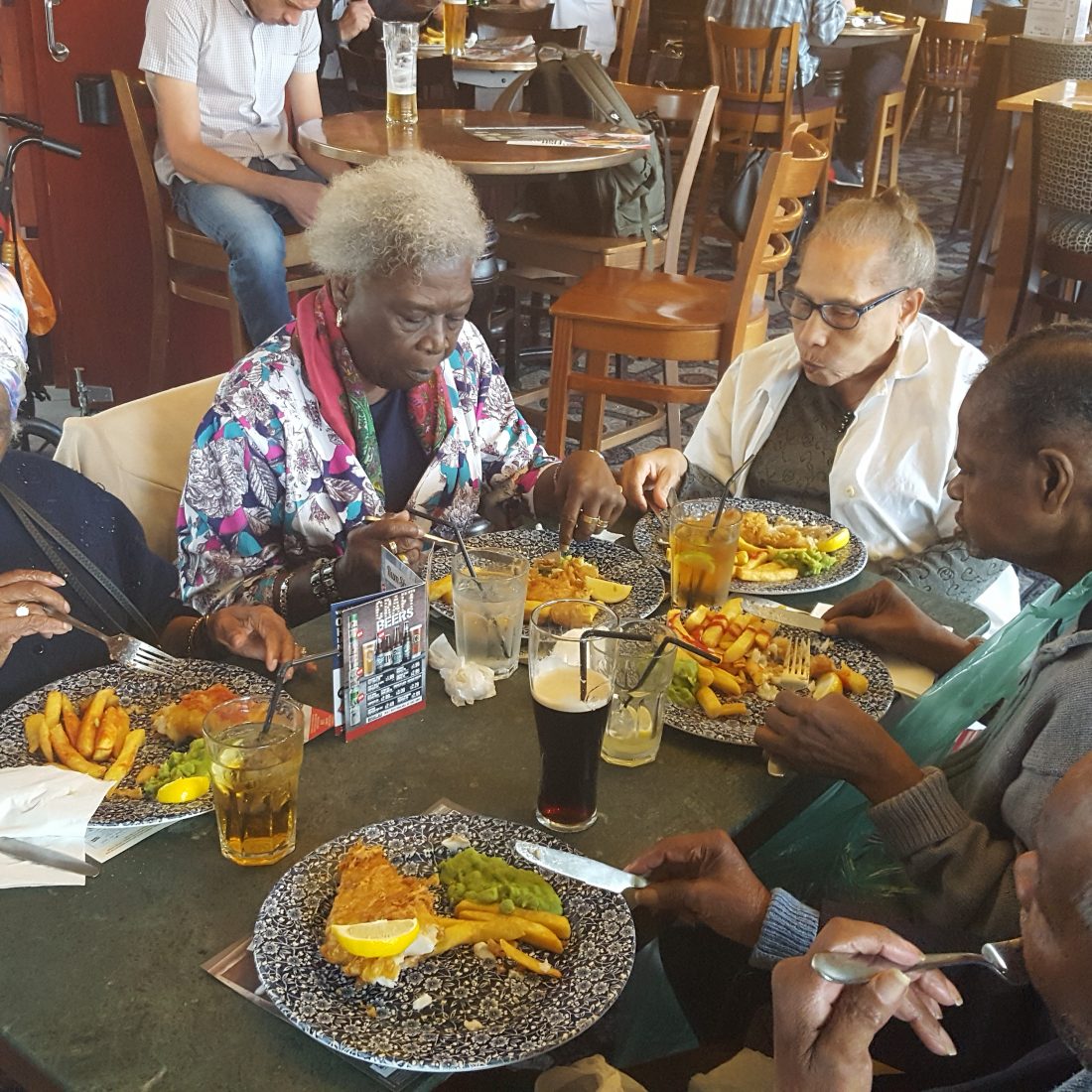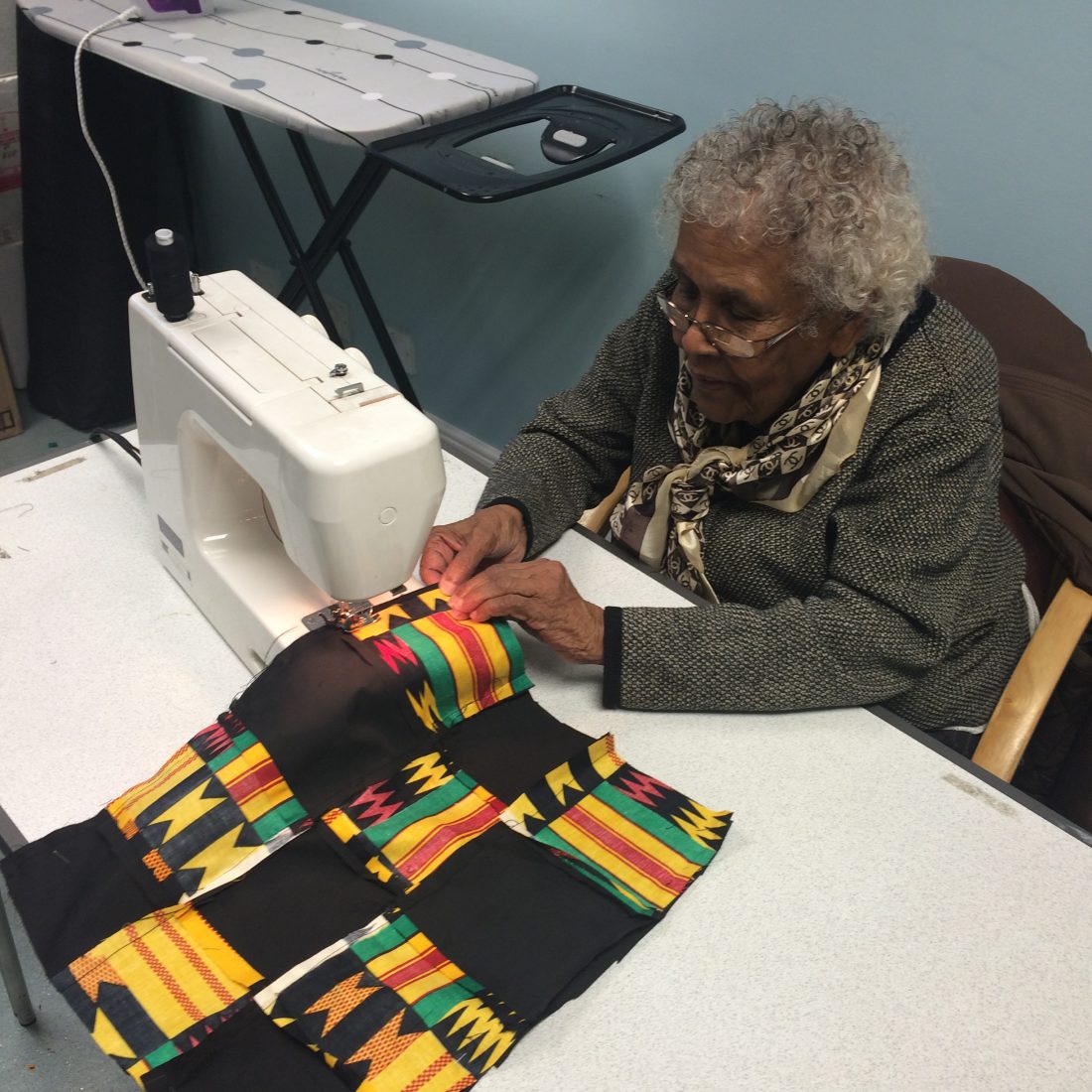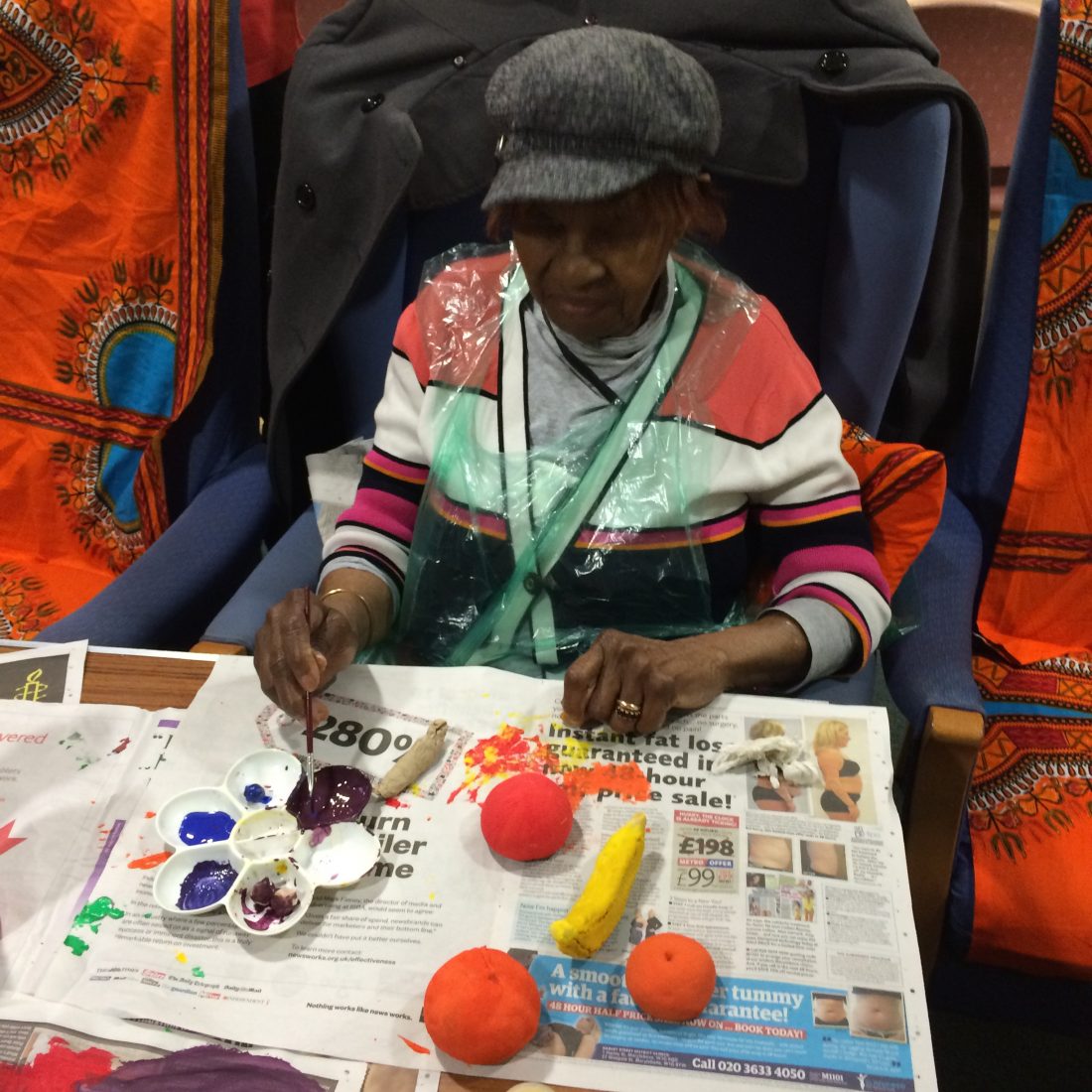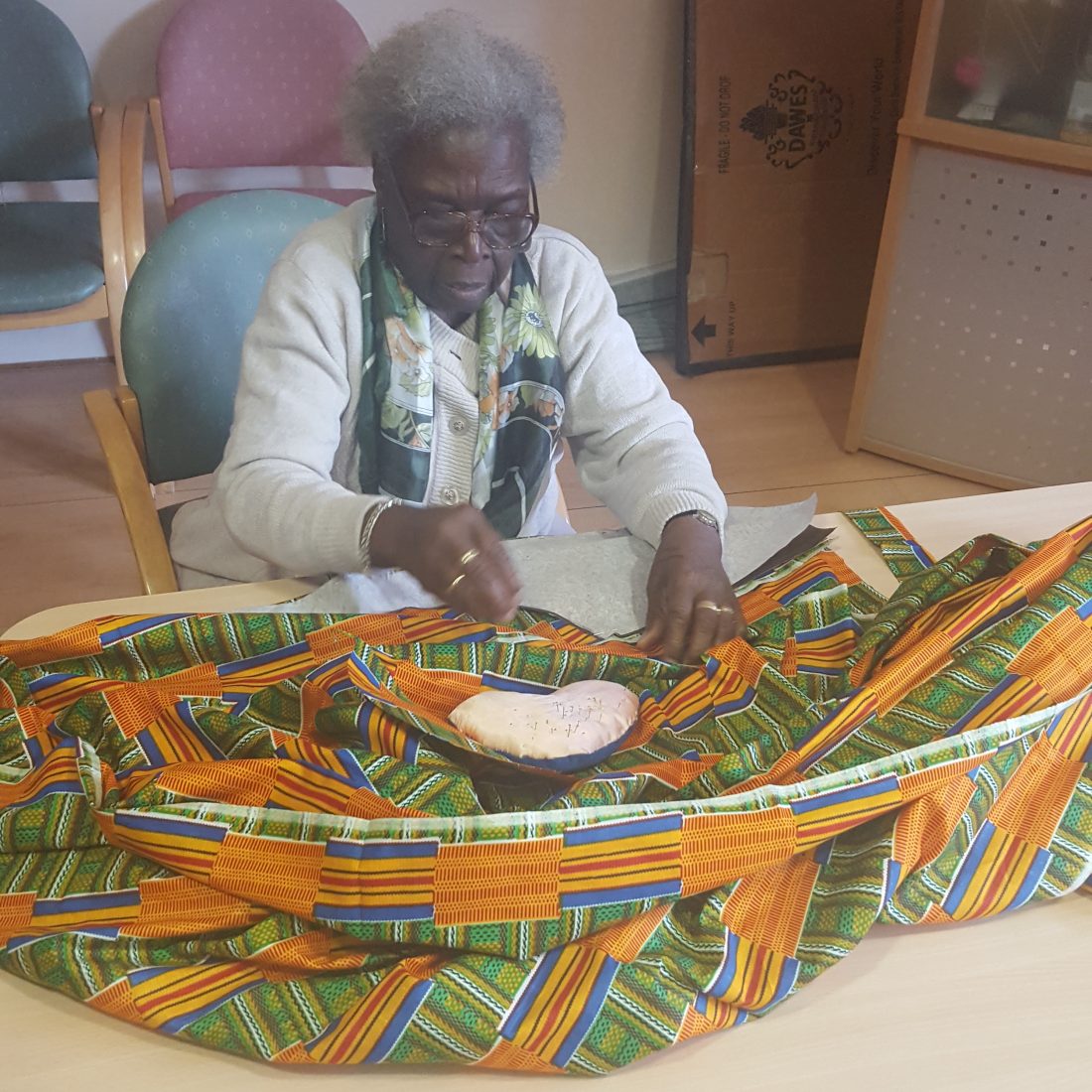There’s no doubt that modern life sees many of us pulled in all directions.
Even the most skilled multi-tasker must feel overwhelmed sometimes, from the school run, laundry, dinner, kids bath time, all while being the perfect partner to your other half, making time for your friends, family, the in-laws… you get the picture! As we get older, an added consideration is facing the fact that mum and dad are getting on in years too. This often comes with health issues, perhaps loneliness during the day. Culturally many of us harbour guilt towards engaging care services for our parents, but what if there is a service that will offer the best care and familiar cultural comforts that your parent is used to?
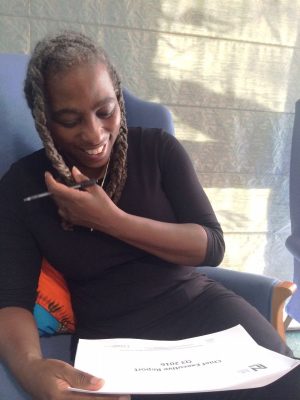 We caught up with Jazz Browne, chief executive of Nubian Life Resource Centre to discuss the importance of providing quality, culturally grounded day care to our African Caribbean elders, and the issues that we all need to be thinking about to look after our elderly relatives well.
We caught up with Jazz Browne, chief executive of Nubian Life Resource Centre to discuss the importance of providing quality, culturally grounded day care to our African Caribbean elders, and the issues that we all need to be thinking about to look after our elderly relatives well.
I meet Jazz at the Centre, which is based in Shepherds Bush, West London. It’s a cold day, but she is cheery, softly spoken and flashes me a bright smile to welcome me in. In the office kitchen she offers me a tea, ‘Tetley please.’ We settle down to the interview.
Melan Magazine: In a nutshell, what is the Nubian Life Resource Centre
Jazz Browne: Nubian Life is an award winning organisation. It was originally birthed from the Hammersmith & Fulham Black Senior Citizens (HFBS), which was set up in 1984 by a group of African and Caribbean elders; excluded from mainstream services. HFBS were successful in their tender to the Department of Health to develop a culturally specific day care service and that’s how Nubian Life was established in 1996.
We provide day care services for African Caribbean elders, who are living with complex health conditions such as dementia, Alzheimer’s disease, diabetes, sensory and visionary impairment and physical disabilities.
MM: Tell us more about the Nubian Life Centre
JB: We’re not a traditional day care centre by any means. We take the time to co-design our activity schedules every 12 weeks along with our clients. They tell us what they are interested in, and we plan the activities with the clients, all aimed at supporting them to achieve personal and collective aspirations. The schedules include a wide range of activities from theatre and cinema trips to photography sessions for example. We also run a savings club and have a very popular holiday club. Since its inception we have visited The Gambia, Turkey, Egypt, the Caribbean via cruise and Cuba. Last year, 20 of us; service users and their relatives, went on a Mediterranean cruise. This was particularly poignant as some clients had not had a holiday in years, so the holiday club is a lovely way of travelling and getting great experiences. We are already planning another holiday for this year.
A lot of our activities are centred around preventing health deterioration, reducing social isolation, loneliness and maintaining good health. We work with a range of partners such as Bush Theatre and Westminster Arts. We are hoping to do our own performance this year.
MM: What are some of the health and care issues faced by some of your service users?
JB: Dementia is a growing issue as it is estimated that about 40,000 people in the UK within our communities are living with dementia and associated comorbidities such as hypertension and diabetes. These statistics are really concerning as there is still an element of dementia being taboo in our community. This lack of understanding of what dementia is means relatives may not pick up on the symptoms and therefore our clients are likely to enter cognitive services; such as memory clinics at an advanced stage of dementia, because they didn’t benefit from earlier support or treatment. While this scenario will see a rapid decline in clients’ health, from a service perspective, it means that our day care service is vital for our clients as they are cared for in an environment that is familiar to them from the moment the front door is open.
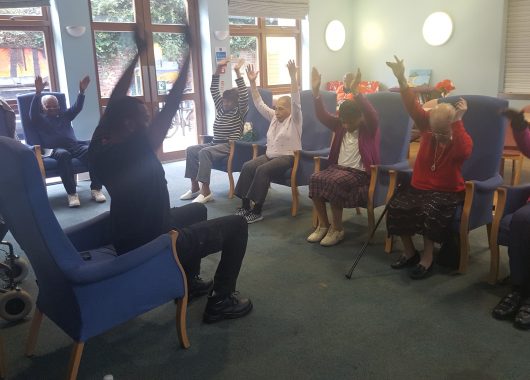
MM: Can you offer some general advice to our readers on how to take care of their elderly parents or relatives?
JB: I think it’s important to recognise that some of us have not grown up with grandparents, so our own parents’ fragility may be our first journey into caring for an older person. We must all start to think about how we are going to take care of, not only our parents, but also ourselves, as we age in the UK. We must begin to have these discussions with our parents; I know we don’t like to do it, but we have to think about long term care, estate and funeral planning; all of those important decisions so that they can make informed choices and not have them made for them. In recognition of the information gaps in this area, Nubian Life is working with our IT company SpirIT UK who are kindly sponsoring a promotional video called ‘Taking Care Of Mum And Dad’. A general, oversight of the care sector for the black community. Secondly, from a strategic point of view, nobody is really picking up on the fact that day care centres particularly those used by African and Caribbean older people, are closing rapidly. We must pay attention to what is happening locally to services within the health and social care sector.
Many of us have a vague notion about the austerity measures and the crisis in adult social care; people don’t really see the impact until they actually need and engage with the service. When you face the fact that your parent might not be eligible and that you may now have to contribute towards your parents’ care; It’s important that we raise awareness of that.
When our parents first came to the UK many of them were told ‘Sorry No Vacancies, it’s sad to think that we are fast approaching an era of ‘Sorry No Services’.
MM: Some people have concerns about living in a residential home, what are your thoughts?
JB: Traditional care often does not work for us, for example we have a client in a local care home and five years into his residency there, I am still asking the staff whether he is being offered the Caribbean menu. I am told: “We put it in his room”; The client is registered blind! How does putting the menu in his room assist him to choose what he would like to eat? I can give so many examples of why main stream residential care does not provide the best care option for us, culturally; irrespective of the ironic fact that most care staff are of Black and Ethnic Minority Descent. Food not being culturally appropriate is an issue, massed produced Caribbean food is often unpalatable; so if you are not enjoying your food, it means that you are not going to eat well. If you’re not eating well, that will trigger off a number of other health issues.
Isolation also is a concern.
MM: Do you know of any other elderly African Caribbean Centres?
JB: That is a really interesting question, as there are a number of services across London that have just closed recently, and we are one of the fortunate ones still in existence. I do know of Pepper Pot in Kensington and Chelsea and there is a similar group, Dutch Pot in Westminster as well as, Calabash in Lewisham, also do good work.
MM: How is the centre funded?
JB: We’re currently funded by Hammersmith & Fulham Adult Social Care and also receive funding from Hammersmith & Fulham Clinical Commissioning Group (CCG). Fundraising is a challenge, for a number of reasons. For one thing, not many funders or trusts are funding single communities. As the main element of our service is a statutory requirement, funders and trusts will not fund a legal obligation of the local authority. Yet across the country commissioning teams and CCG’s are looking towards the voluntary sector to further underpin statutory service provision at a cheaper rate, even though we have the same staffing costs, operation and premises costs to be met from our contracts and grants which often do not reflect the true cost of running services.
MM: What can we do to support Nubian Life?
JB: You can best support us by raising awareness of our services. If you know of any older person who is isolated and wants to remain active or needs support to remain living at home, get in contact. Let them know Nubian Life Centre is a safe place where they will be looked after and you, their relatives, can continue to work knowing that your relative is safe and being cared for.
Help us fundraise through community events, legacies and donations. We have a wonderful volunteer who is going to run the Virgin London Marathon for us in 2017. Please go to her fundraising page and sponsor her. Thank you.
Sidenote* It has an impressive industrial kitchen where food is cooked daily by Caribbean cooks (I sample the fish lunch before I leave and I’m instantly reminded of home cooked meals my Nan makes, I am in no doubt that everybody eats well here!)
It’s a clean, warm new build on one floor with a large main space which can be partitioned in to a lounge and activity area, great for wheelchair access. This leads out to a well-kept garden with lovely plants and seating area.
I must say, this resource centre is home from home, a great place for our elders to spend the day and run by a spectacular lady. It is vital we continue to support organisations that support our community.
Visit: www.nubianlife.org.uk

